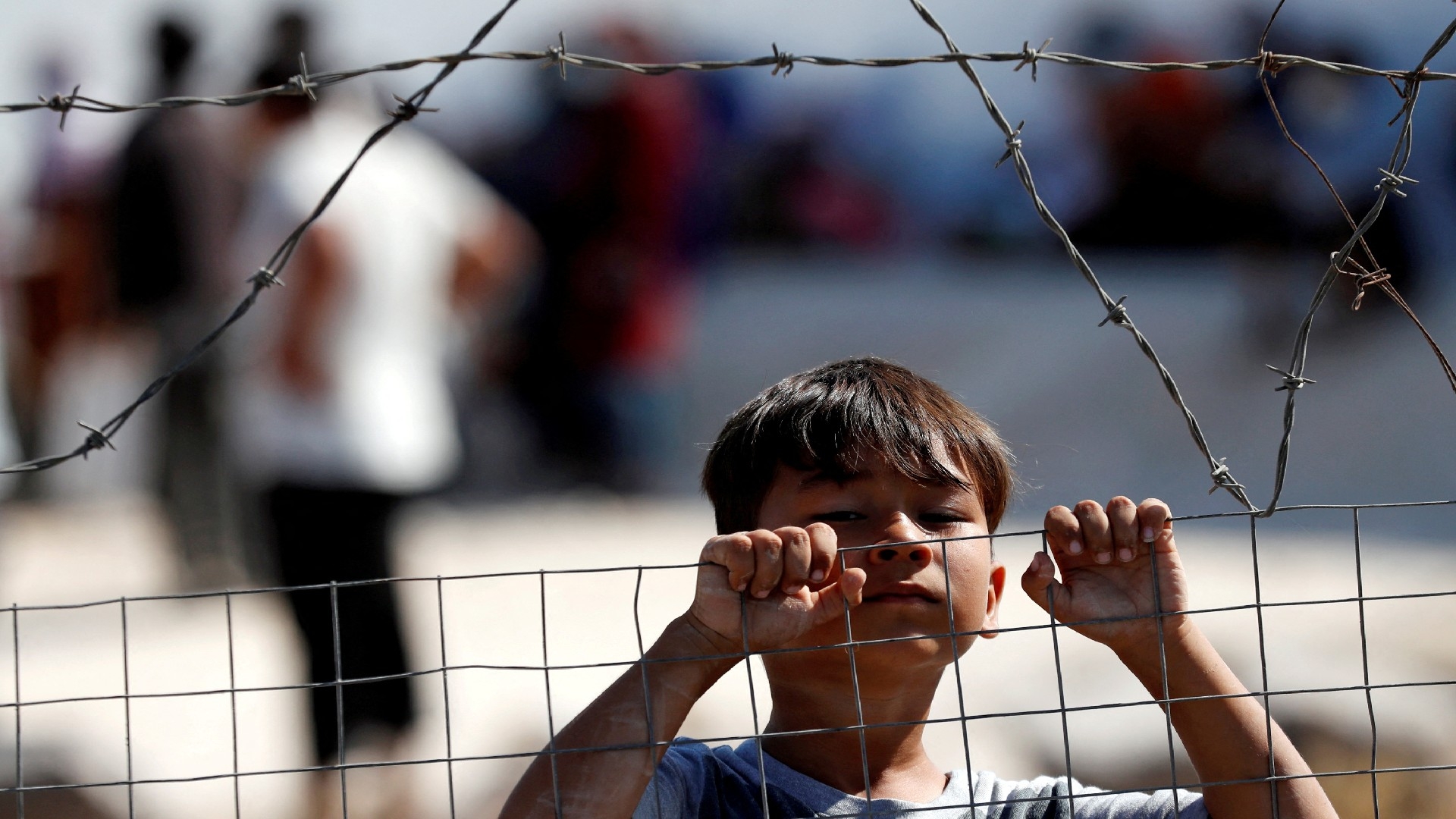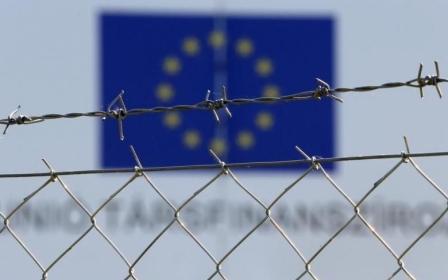North Africa a 'testing ground' for EU surveillance technology

Controversial surveillance technologies are being outsourced by the European Union to countries in North Africa and the Sahel region with no transparency or regulation, according to two new reports.
Funding, equipment and training is funnelled to third countries via aid packages, where autocratic governments use the equipment and techniques to surveil the local population.
Beyond the borders of Europe, the movements of asylum seekers are being policed and eventually used to assess their asylum applications.
Antonella Napolitano, author of a report for human rights group EuroMed Rights, told Middle East Eye that the implementation of these projects is opaque and lacks proper consideration for the rights of civilians and the protection of their data.
"There aren't enough safeguards in those countries. There aren't data protection laws," Napolitano said. "I think the paradox here is that border externalisation means furthering instability [in these countries]."
Stay informed with MEE's newsletters
Sign up to get the latest alerts, insights and analysis, starting with Turkey Unpacked
The complex web of funding projects and the diversity of actors who implement them make the trails of money difficult to track.
"This enables states to carry out operations with much less transparency, accountability or regulation than would be required of the EU or any EU government," Napolitano told MEE.
The deployment of experimental technologies on the border is also largely unregulated.
While the EU has identified AI regulation as a priority, its Artificial Intelligence Act does not contain any stringent provision for the use of the technologies for border control.
"It's creating a two-tiered system," Napolitano told MEE. "People on the move outside the EU don't have the same rights by design."
Asylum claims
The surveillance of migrants on the move outside of Europe is also brought to bear back inside Europe.
A Privacy International report published in May found that five companies were operating GPS tagging of asylum seekers for Britain's Home Office.
"It's been massively expanded in the past couple of years," Lucie Audibert, legal officer at Privacy International, told MEE.
Other, less tangible forms of surveillance are also deployed to monitor asylum seekers. "We know, for example, that the Home Office uses social media a lot… to assess the veracity of people's claims in their immigration applications," Audibert told MEE.
'It's creating a two-tiered system. People on the move outside the EU don't have the same rights by design'
- Antonella Napolitano, surveillance expert
According to the reports, surveillance equipment and training is supplied by the EU to third countries under the guise of development aid packages.
These include the EU Emergency Trust Fund for Africa (EUTF for Africa) and now the Neighbourhood, Development and International Cooperation Instrument.
The reports cite multiple instances of how these funding instruments served to bolster law enforcement agencies in Algeria, Egypt, Libya and Tunisia, furnishing them with equipment and training that they then used against the local population.
The EUTF for Africa allocated 15 million euros ($16.5m USD) in funding to these countries to train up a group of "cyber specialists" in online surveillance and data extraction from smart devices.
A Privacy International investigation into the role of CEPOL, the EU law enforcement training agency, revealed that it had supplied internet surveillance training to members of Algeria's police force.
The investigation highlights a potential connection between these tactics, which contravened the EU's own policies on disinformation, and the wave of online disinformation and censorship driven by pro-regime fake accounts in the aftermath of the 2019 Hirak protests in Algeria.
A dangerous trend
For journalist Matthias Monroy, the major development in border surveillance came after the so-called migration crisis of 2015, which fuelled the development of the border surveillance industrial complex.
Prior to that, Europe's border agency, Frontex, was wholly dependent on member states to source equipment. But after 2015, the agency could acquire its own.
"The first thing they did: they published tenders for aircraft, first manned and then unmanned. And both tenders are in the hands of private operators," Monroy told MEE.
Frontex's drones are now operated by the German company Airbus, Frontex’s planes by the British DEA.
"Their crew detected the Crotone boat," Monroy told MEE, referring to a shipwreck off the coast of Crotone, Italy, in February.
"But everybody said Frontex spotted the boat. No, it was Airbus or DEA. It's very difficult to trace the responsibility, so if this surveillance is given to private operators, who is responsible?
Almost 100 people died in the wreck.
Since 2015, with the expansion of the border surveillance industrial complex, its digitisation and control has been concentrated increasingly in the hands of private actors.
"I would see this as a trend and I would say it is very dangerous," Monroy said.
This article is available in French on Middle East Eye French edition.
Middle East Eye delivers independent and unrivalled coverage and analysis of the Middle East, North Africa and beyond. To learn more about republishing this content and the associated fees, please fill out this form. More about MEE can be found here.





